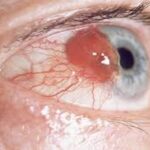People with a family history of cancer should be more careful
healthysoch
New Delhi, May 13, 2019 :
Between 2018 and 2040, the number of patients requiring first-course chemotherapy annually will increase from 9.8 million to 15 million, as per estimates. A study published in The Lancet, Oncology indicates that a steady growth curve of patients (eligible for chemotherapy) will be seen in low and middle income countries going from 63% in 2018 to 67% in 2040.
Statistics also indicate that the cancer burden in India has more than doubled over the last 26 years. Cancers of the breast, cervix, mouth, and lung together constitute 41 per cent of the disease burden in the country. The need of the hour is to create awareness on the importance of prevention.
Speaking about this, Padma Shri Awardee, Dr KK Aggarwal, President, HCFI, said, “The prevalence of cancer in our country is not uniform. There is a difference in the types of cancer that affect people basis rural and urban settings. In rural women, cervical cancer is the most widespread while in urban women, breast cancer is the most rampant. Men in the rural areas are majorly affected by cancers of the oral cavity while those in the urban areas are affected by cancer of the lung. Although cancer has become an epidemic with a steep rise in its incidence, the irony is that cancer medicines are very expensive and beyond the reach of a common man. Thus, price control is very necessary to provide people with affordable cancer medicines. At an individual level, it is important to take preventive action at the earliest.”
Cancer is the name given to a collection of related diseases that are caused when a group of abnormal cells begin to grow uncontrollably, often forming a tumor. Tumors can either be benign or malignant.
Adding further, Dr Aggarwal “Although the exact cause of cancer is not known, research indicates that certain risk factors may increase a person’s chances of developing cancer. These include things that cannot be controlled such as age and family history. Lifestyle choices that increase your chances of contracting cancer include smoking, obesity, lack of exercise and poor diet.”
There are four major types of clinical preventive care: immunizations, screening, behavioral counseling (lifestyle changes), and chemoprevention. Screening is the identification of an asymptomatic disease, unhealthy condition, or risk factor. Primary prevention are interventions to keep disease from occurring (eg, immunization for communicable disease); secondary prevention as detection of early asymptomatic disease (eg, screening); and tertiary prevention as reducing complications of disease (eg, eye examinations in patients with diabetes). This nomenclature is applied differently by some other disciplines.
Some tips from HCFI
- Pay attention to symptoms and get yourself checked regularly.
- Using any type of tobacco puts a person at an increased risk of cancer. Avoiding or stopping the consumption of tobacco is one of the foremost steps in cancer prevention.
- Filter tap water properly as this can reduce your exposure to possible carcinogens and hormone-disrupting chemicals.
- Get vaccinated on time and as per schedule. For example, the Human Papilloma Virus (HPV) vaccine helps prevent most cervical cancers and several other kinds of cancer.
- Drinking plenty of water and other liquids can help in reducing the risk of bladder cancer by diluting the concentration of cancer-causing agents in urine and helping to flush them through the bladder faster.
- Most importantly, make lifestyle changes such as eating a healthy diet and getting regular exercise. Fruits and vegetables are rich in antioxidants which can help ward off diseases.







